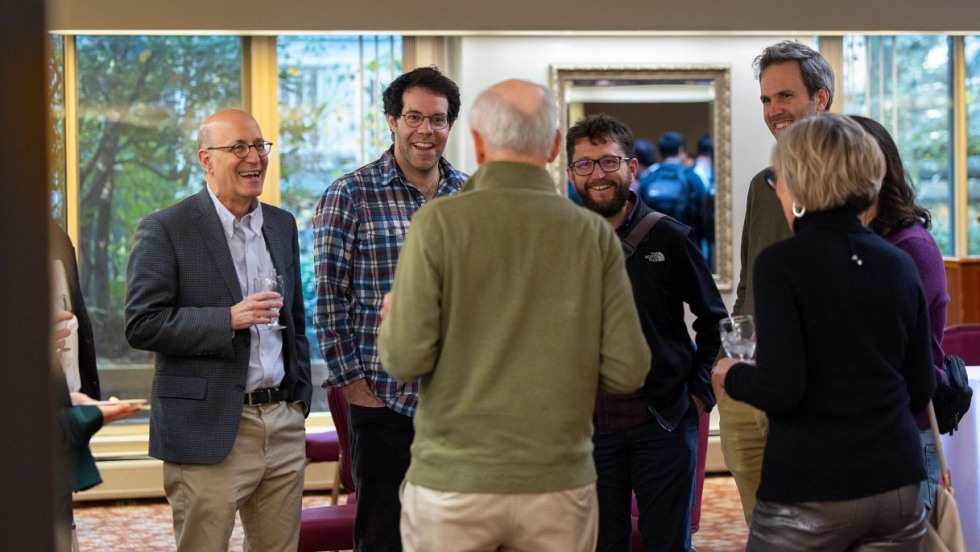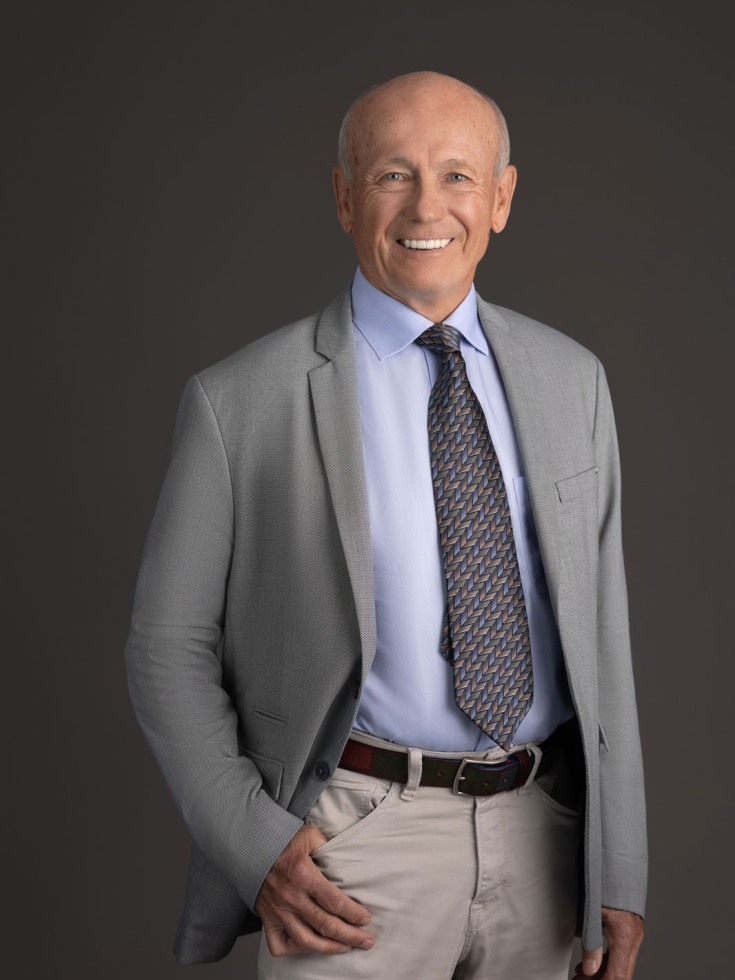PROVIDENCE, R.I. [Brown University] — Ten days after winning the 2025 Nobel Prize in Economic Sciences, Brown University Professor Emeritus of Economics Peter Howitt returned to campus on Oct. 23 for a daylong visit to celebrate with Brown colleagues, who toasted his achievement at an event at Brown’s Faculty Club.
“I’m overwhelmed by all of the events of this week, but nothing means more than to hear from my former colleagues and to be back here [at Brown], where I enjoyed so many years together with them and in this wonderful environment,” Howitt said at a celebration packed with faculty members and graduate students. “I’m proud of what happened, and I hope that you all will be proud… of creating such a wonderful environment for me.”
Howitt, who shares one half of the Nobel Prize in Economics with Philippe Aghion of the Collège de France and INSEAD in Paris and the London School of Economics and Political Science in the United Kingdom for their “theory of sustained growth through creative destruction,” traveled to Providence with his wife, Pat, from their home in North Carolina.
“I haven’t been back for 10 years, since I retired, and I’ve always wanted to come back — and I thought, if I don’t come back on this occasion, I’m not ever going to make it,” he said in an interview before the event. Howitt added that he wanted his visit to Providence be relatively low-key, and that while in town he hoped to take a walk through the East Side neighborhood where he used to live.
In remarks at the celebration, Brown President Christina H. Paxson, a professor of economics and of international and public affairs, praised Howitt’s outstanding contributions to the field — which include creating a mathematical model that captures the economic theory of creative destruction — before describing the excitement around the award at the University.
‘The whole Brown community is so proud,” Paxson said. “I’ve been hearing from students, faculty in many fields and alumni. It really is just a point of pride for the entire University and will be for many years to come. So I want to thank you for your work and your contributions to Brown and to the world. It’s important research and it shows that we are a university that takes important scholarship seriously, and we do it very well.”




